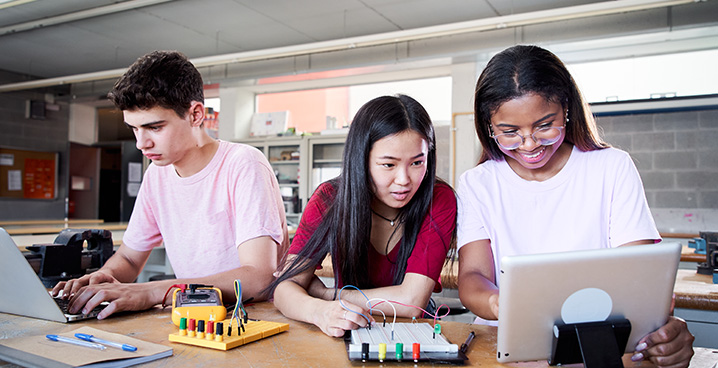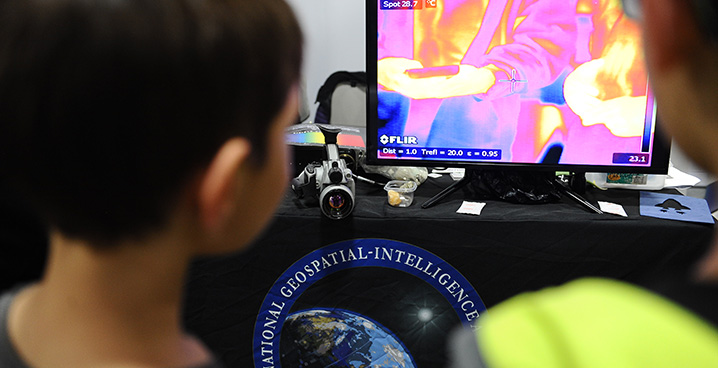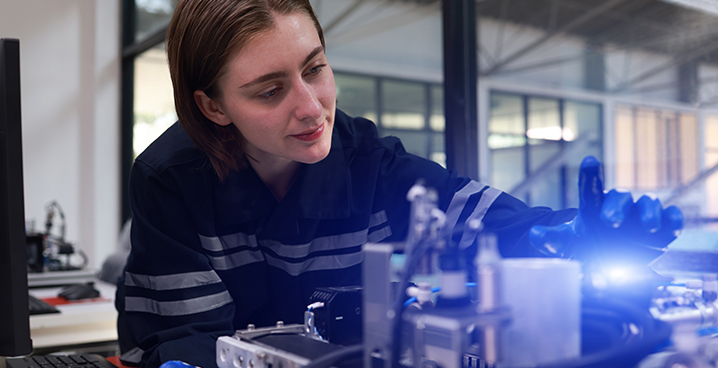Are You Interested in Space?
The space domain is rapidly evolving as new technology and innovation advance scientific discovery and create new challenges for national security. The DoD invests in space technology to maintain our nation's edge in space capabilities, protect freedom to access space, and ensure national security. These efforts require many different roles in the fields of technology, science, aerospace, engineering and more.
To learn more about why space technology is important to the DoD, and to read about other emerging areas, visit OUSD(R&E) Criticial Techonology Areas.
“We are infinite beings with infinite possibilities.”
Dr. Bernard Harris
Former NASA Astronaut
CEO, National Math + Science Initiative
Did you know?
Air Force, which includes Space Force (like how Navy includes the Marine Corps) employs over 170,000 civilians and 6,800 Guardians to support research and development for air, space, and cyberspace.
Types of Careers in Space Technology
Aerospace Engineer
Application Software Engineer
Artificial Intelligence (AI) Designer
Artificial Intelligence (AI) Programmer
Artificial Intelligence (AI) Researcher
Assembly Engineer
Assembly Technician
Astrochemist
Astronaut
Astronomer
Atmospheric Scientist
Automation Engineer
Aviation Fuels Chemist
Avionics Technician
Computer Hardware Engineer
Computer Systems Programmer
Developmental Engineer
Electrical Engineer
Electronics Engineer
Fusion Analyst
Geospatial Engineer
Intelligence Analyst
Machine Learning Engineer
Mechanical Engineer
Meteorological Technician
Physicist
Plasma Physicist
Signals Intelligence Analyst
Space Systems Operator
Telecommunications Engineer
Plus Many More!
Space Technology Jobs in Action at the DoD

Dr. Oscar Martinez
Dr. Oscar Martinez
Astrochemist
Air Force Research Laboratory
Learn More about Space through these Opportunities

Lincoln Laboratory Radar Introduction for Student Engineers
The Lincoln Laboratory Radar Introduction for Student Engineers is a free two-week project-based STEM enrichment workshop for high school students. Students gain in-depth experience in building a Doppler and range radar by using creative problem-solving strategies. This hands-on program allows them to work with highly talented scientists and engineers.

National Geospatial-Intelligence Agency Student Internships
The National Geospatial-Intelligence Agency (NGA) Student Internship Program is a dynamic opportunity for students at all academic levels, spanning high school to post-graduate studies, across a wide range of fields. Interns tackle real-world projects assigned by supervisors and engage in networking events.

Autonomy Technology Research Center
The Autonomy Technology Research Center summer program is a collaborative research experience for undergraduate and graduate students to participate in research projects mentored by the Air Force. Projects focus on sensing and autonomy technologies, sensor processing and exploitation, object detection, tracking and recognition, navigation, geolocation, malware detection and defense issues, and more.